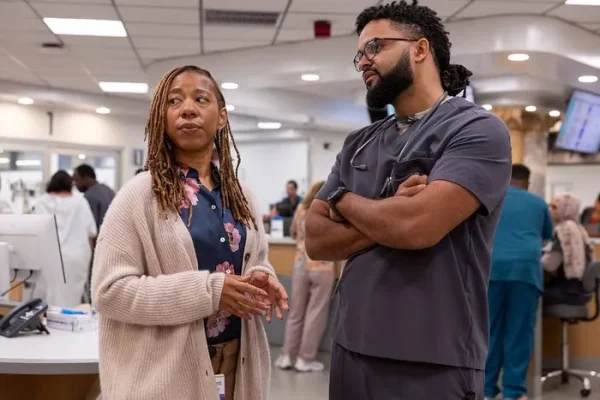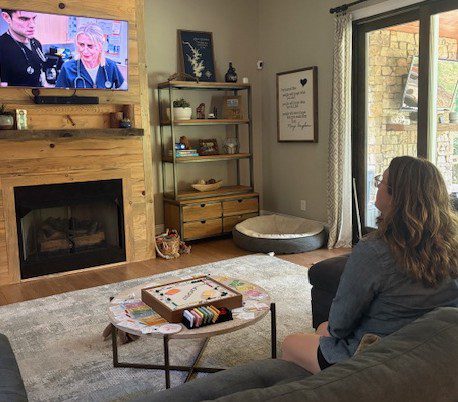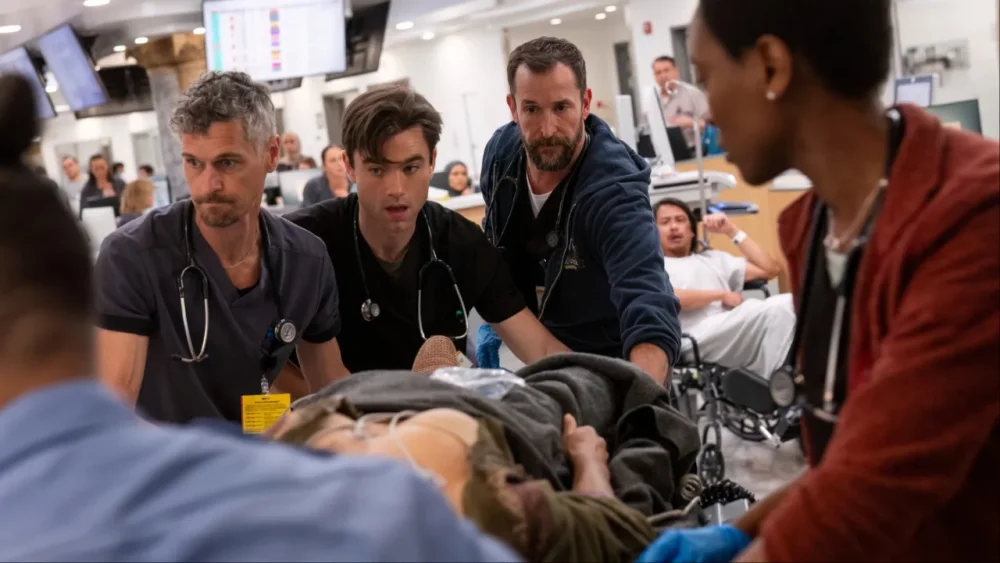Did TV hospital drama ‘The Pitt’ portray a social worker accurately? A social work lecturer weighs in

By Pam Davis
Hailed as one of the most realistic portrayals of emergency medicine on TV, “The Pitt” has garnered high marks from medical professionals for its real-life depictions of medical procedures, language, and the challenges facing the health care industry.
“The show offers audiences a raw glimpse into a health care system on the brink. It shines a light on complex, urgent issues — hospital boarding, limited resources, and the mounting toll of trauma and mass casualty events — that affect both patients and the people working tirelessly to save them,” Nicholas Cozzi, M.D., director of emergency medical services at Chicago’s Rush University Medical Center, wrote in an essay for Time magazine.
The series earned 13 nominations for the 2025 Emmy Awards, including outstanding drama series, lead actor, supporting actress, writing, and directing. All 15 episodes are streaming now on HBO Max and will air on cable’s TNT network this fall. Season two is currently in production and is set to premiere January 2026.
Taking its name from the fictional Pittsburgh Trauma Medical Hospital where it’s set and also a moniker for an emergency room, the show stars Noah Wyle (of TV’s “ER” fame) as the attending physician and a large cast representing all the positions in an emergency room from nurse to administrator, including a social worker named Kiara Alfaro, played by actress Krystel McNeil. Alfaro is a recurring character who mainly appears in the first half of the series.
To find out how accurate the show’s social worker is, I asked Lynn Puma, DHSc, LCSW, a lecturer in the School of Social Work within UNC Charlotte’s College of Health and Human Services, to watch “The Pitt” and answer some questions about how the series depicted a hospital social worker.
Puma, who earned a Master of Social Work from UNC Charlotte in 2003, has been a lecturer in the School of Social Work for the last 12 years. She spent more than 13 years as a pediatric social worker at Atrium Health Levine Children’s Hospital before starting her private practice, Bridging the Gap Counseling & Consulting, which provides mental health therapy for athletes. Most recently, she became the official mental health provider for the Carolina Ascent FC professional women’s soccer team.

What did you think of “The Pitt” overall?
I really enjoyed it. I think one of the reasons I liked working in health care is that it’s a fast-paced environment where you need to think on your feet and nothing was ever the same. The show illustrated that. Every day you walked in, you didn’t know what you were going to expect.
I also think the show does a really good job of showing that health care workers are people too. It’s not just about the cases they bring in, it’s also about the struggles that each of those doctors are experiencing, from the chief medical director down to the medical student. Each of us, when we’re in a hospital setting, brings a piece of ourselves there.
Were you surprised to see the social work profession represented in a television show?
Yes, I was. What surprised me more is how accurate her role is. They have her dealing with a variety of issues, not just child abuse or other types of things most people associate with social workers. The depiction is spot on as to what we experience as social workers in hospital settings.
Were there any scenes in particular with the social worker that resonated with you?
The scene that triggered me a little bit because of my past experience, was the child who died by drowning and the social worker’s role to be with the caregiver and the sister. I’ve done that. I remember being there to support a family in that type of situation. That was probably the hardest scene. It brought back a lot of feelings and emotions for me.
The other thing I really appreciated is the way she educated the physicians about certain things. I felt that one of my unwritten responsibilities was to educate the providers on how to approach delicate situations like that and how to view situations through a different lens that incorporates other aspects of the patient that they may not be considering such as social support, finances, housing, employment, and other things.
Did you see anything that was way off base?
No. But the one thing I wish they would have done is spend a little more time showing how social workers approach situations from a different lens than what a medical student or resident would do.

Did you feel any kind of sense of pride in your profession while watching the show?
I absolutely felt some pride. I feel like I was meant to be a social worker. It sounds kind of corny, but it was really the field that I was meant to be in, and seeing a social worker portrayed in such a positive way on “The Pitt” makes me feel really good. I wish there were more accurate portrayals of social workers in the media. When I tell people I’m a social worker, many of them don’t know what to say. It’s good to expand people’s understanding of what we do.
How do you see the field of social work expanding in the future?
I think one of the areas you will start to see social workers or behavioral health specialists is integrated into primary care offices. With the rise of mental illness and mental health issues, and as we begin to break down the stigma and people talk more about what they’re dealing with, they will start going to their primary care office first.
Research shows, however, that those providers don’t feel capable or don’t feel like they have the abilities to address mental health on top of what they’re already addressing, so many of them are bringing in behavioral health specialists or social workers to help provide that extra support. Social workers are able to do baseline screenings for anxiety and depression. They can help patients stay on treatment regimens prescribed by doctors. Social workers are needed, and the field is going to continue to grow.
Pam Davis is the Director of Communications for UNC Charlotte’s College of Health and Human Services.